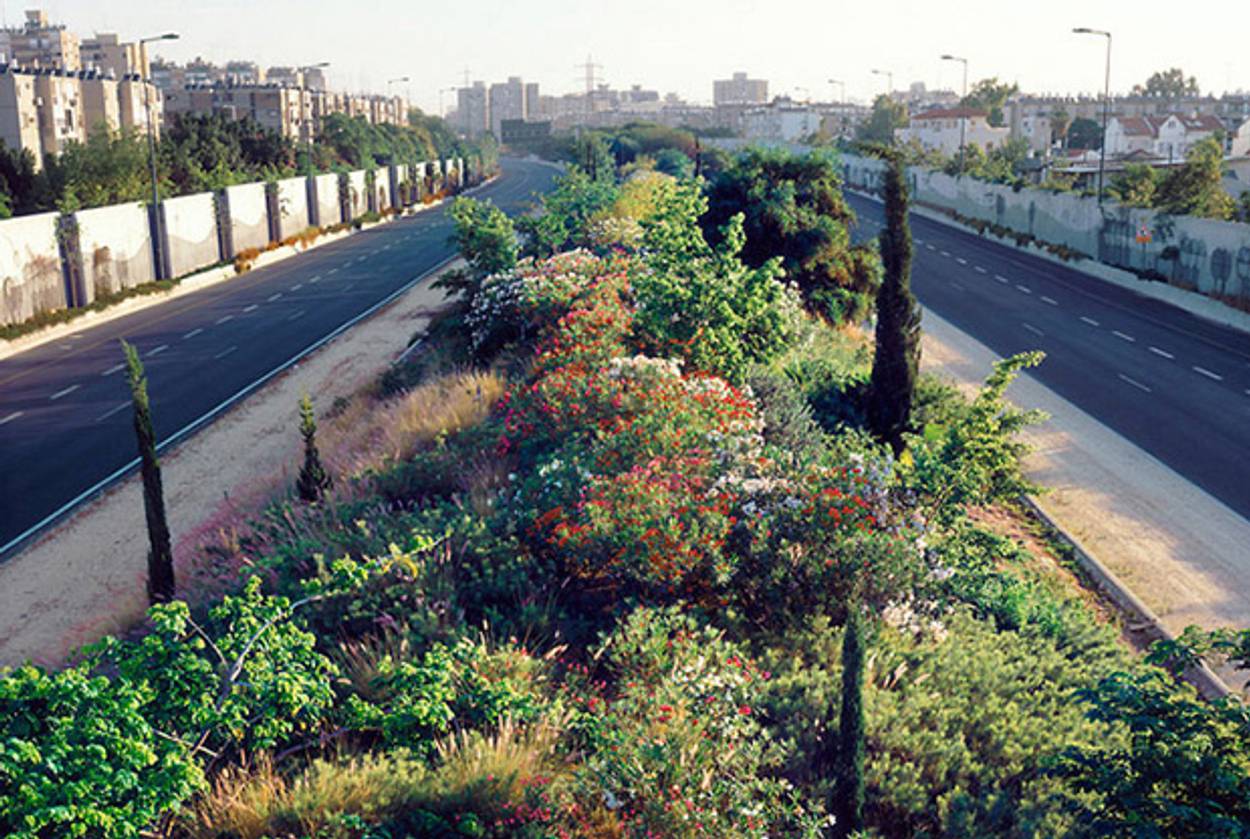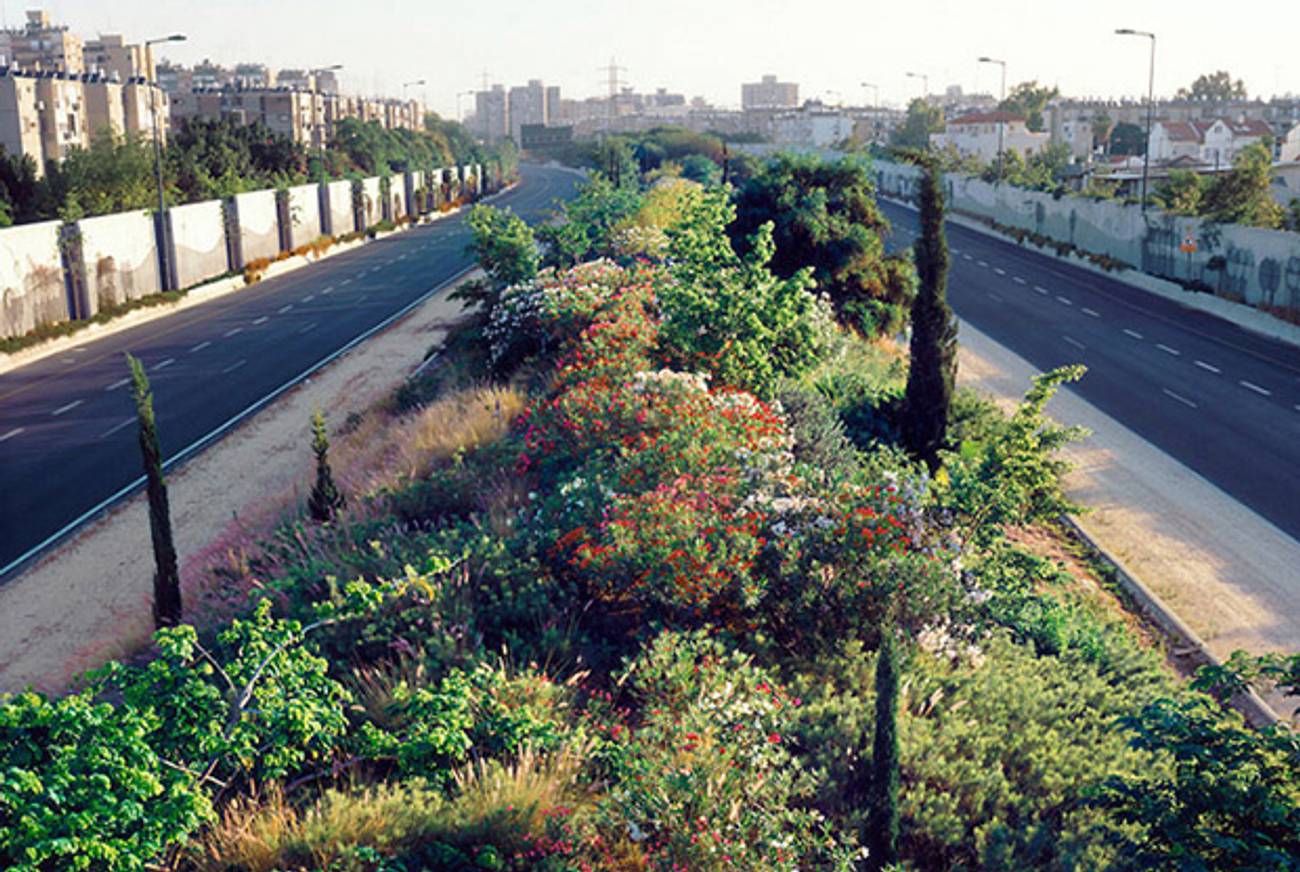Arab Israelis, Undivided
In a new English translation of Second Person Singular, Israeli novelist Sayed Kashua gives voice to the Arab minority in the Jewish state




Two summers ago, I drove off of Route 6, the newish toll road that juts up against the West Bank near Tira, my destination, not far from the upscale Tel Aviv suburb of Kfar Saba. I was meeting a dean and professor of women’s literature at a Galilee Islamic college, who told me that I would recognize Tira by the auto shops along the highway. Indeed, I already knew Tira from reading Sayed Kashua’s Haaretz columns, many of which reflect on his childhood upbringing there, in a voice that is at once both completely Israeli and also reflective of the minority voice in Israel. When I arrived at my destination—a modern villa-style suburban home—my host was reading Kashua’s new novel in Hebrew, just published in English under the title Second Person Singular. (None of Kashua’s work has been translated into Arabic.)
Raised in Tira by parents who were secular activists in the Israeli Communist Party, Kashua attended on scholarship the Israel Arts and Science Academy, a Jerusalem boarding school for gifted Israeli students. When I met him six years ago in his home in the Palestinian village of Beit Safafa, which sits on the Jerusalem municipal border (he has since moved to a mostly Jewish neighborhood in West Jerusalem), he talked about his formative literary experience in high school. “The Catcher in the Rye by J.D. Salinger was the first book I read in Hebrew in high school,” he said. “I was crying because it was so difficult to read it in Hebrew because I had never read so much Hebrew. It was a big test for me that I should finish this novel. I had read one, two pages in Hebrew, and then came Salinger.”
Today, still in his early 30s, Kashua is an Israeli cultural phenomenon—with three novels, a weekly satiric column in Haaretz,and creator credit on Arab Labor, the first situation comedy in Israel to feature an Israeli Arab as the main character. The show, now entering its third season, is written by Kashua and loosely based on his Haaretz persona. No character, Jewish or Arab, is spared Kashua’s keen eye. In promoting the show he has said, “Extremist or right-wing people from both sides found it a little bit difficult, both Jews and Arabs, but I hope it makes people think.”
Kashua mined his childhood experiences for Dancing Arabs, a novel about a teenage boy from a Galilee village who goes to boarding school in Jerusalem, where he has his first substantive interactions with Jews. Scheming to return to the village, Kashua’s nameless first-person narrator plans to beg his parents on his first visit home to let him leave the school: “I’ll tell them how out of place I felt during the Rosh Hashanah meal, how I don’t know a single word of their songs.”
Kashua’s writing and insight serve to translate several different, and conflicting, realities at once: the Israeli Arab experience both in the Galilee villages and in the city, what it feels like to be an Arab student rising in elite status inside Israel, and, most important, how schizophrenic it feels to be an Arab citizen of Israel, never certain of who you are. When I asked him several years ago about what Tira’s residents thought of their portrayal—albeit fictional—in his first novel, Kashua told me: “All of Tira read Dancing Arabs, and all that they thought of it was that [the main character] lived with his wife before marriage. Not our families, but local newspapers wrote this—that he tarnished the name of the family.”
There is no starker illustration of the social and political insecurity that Israel’s Arab citizens face than the passages in Kashua’s second novel, Let It Be Morning, where he plays out a scenario put forward by Israel’s rightist Foreign Minister Avigdor Lieberman and others to transfer swaths of land inside Israel and its inhabitants to the Palestinian government if they succeed in forming their own state. The trouble with this scenario is of course that the Arab-Israeli residents of the Galilee villages in dispute have absolutely no interest in being bargained and bartered over. As the Kashua-based narrator in the novel sees it, his Israeli Jewish colleagues on the fictional newspaper where he works never considered him one of them: “How I hate myself for trying to believe I was really one of them, for trailing after them on lunch breaks, for trying to kid around with them.” Yet, even as his village is surrounded by Israeli tanks, and phone service is cut off along with water and electricity as the land transfer is put into place under a veil of negotiating secrecy, the nameless narrator notes: “There are blockages all over the village and I wonder how it’s possible for people to know that the sewage is stopped up and the village has no water—and to continue behaving normally. Sometimes I can’t help feeling unspeakably sorry for them when I see how much they believe in their citizenship.”
And that is the rub, which makes Kashua such a good chronicler of his generation and his country. He writes about a significant portion of Israelis—20 percent of the population—who are citizens, trying to navigate their daily needs in the midst of an Israel that still needs to come to terms with what it means to live up to its own Declaration of Independence, which states: “based on freedom, justice and peace as envisaged by the prophets of Israel; it will ensure complete equality of social and political rights to all its inhabitants irrespective of religion, race or sex; it will guarantee freedom of religion, conscience, language, education and culture.”
Kashua’s work captures the unique and often painful situation of Israel’s Arab citizens, while also opening a window for the non-Arab reader to better understand this dilemma. Indeed, a recent example drawn from Israel’s headlines could as easily come from one of Kashua’s novels when Israel’s first Arab permanent member to the Supreme Court, Salim Joubran, refused to sing Hatikva, the Israeli national anthem, at a formal ceremony, choosing instead to stand silent. Since Hatikva is about Zionist yearning for return of the Jewish people to Israel, it offers no way in for the 20 percent of Israelis who do not share such yearnings.
The nameless narrator of Kashua’s newest novel is an Arab lawyer practicing in West Jerusalem (the Jewish side of the city), where he labors to fit in. Also hailing from a village in the Galilee, he came to Jerusalem to attend Hebrew University, met his wife (also a villager), and stayed to grow a family and establish his career. This novel takes us inside the lives of the Palestinian professionals who live mostly in East Jerusalem or in villages within the expanded greater Jerusalem borders like Beit Safafa and Beit Hanina and are a complex mix of Israeli citizens, West Bankers, and Jerusalemites, who don’t have citizenship status among either the Israelis or the Palestinian Authority. As anyone who reads this book will sense immediately, the notion that Jerusalem is a united city is ridiculous; spend any time, as Kashua’s characters do, as an Arab living in East Jerusalem and your daily reality—from the books you read, the music you listen to, the justice that is adjudicated, and how and where you educate your children—is completely different from that of your counterparts in West Jerusalem.
Fittingly, Kashua sends his two children to the bilingual school in Jerusalem. It’s the only place in that city where there is an effort to integrate Arab and Jewish students, with two teachers of each background in each class, yet all the kids develop a Jewish-Hebrew accent. As Kashua told me when we met: “I am protecting my kids. But now they don’t have an accent. My daughter has no Arabic accent because she was taught in the bilingual school, and it is much easier. I don’t know how one person who looks like an Arab can survive in this country,” he sighed. “But I am doing my best to look like an ‘Israeli,’ I think.”
***
Like this article? Sign up for our Daily Digest to get Tablet Magazine’s new content in your inbox each morning.
Jo-Ann Mort writes frequently about Israel and Palestine for a variety of publications.
Jo-Ann Mort writes frequently about Israel and Palestine for a variety of publications.